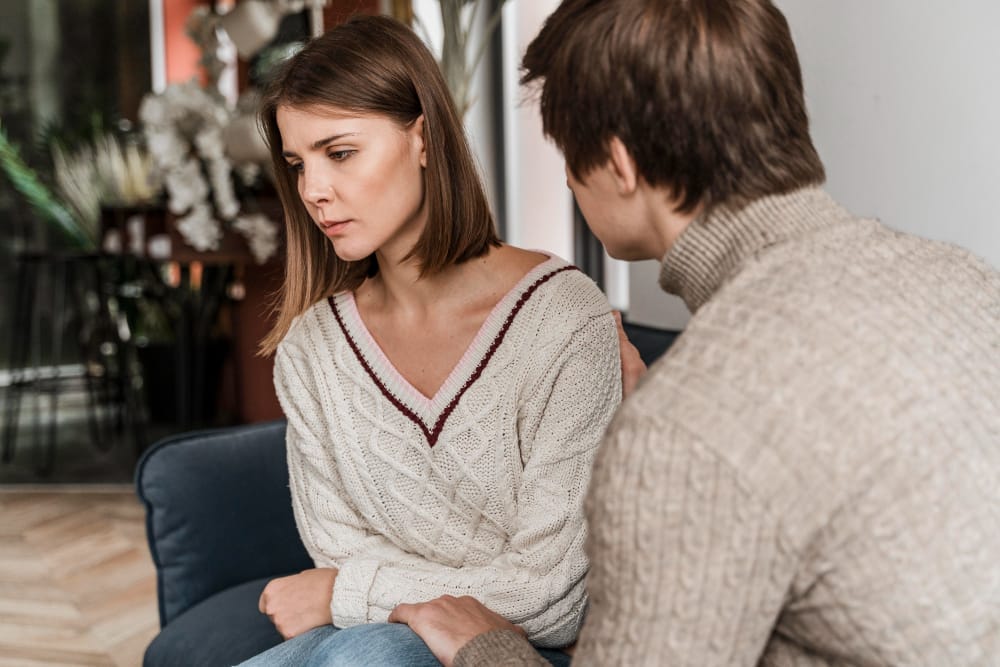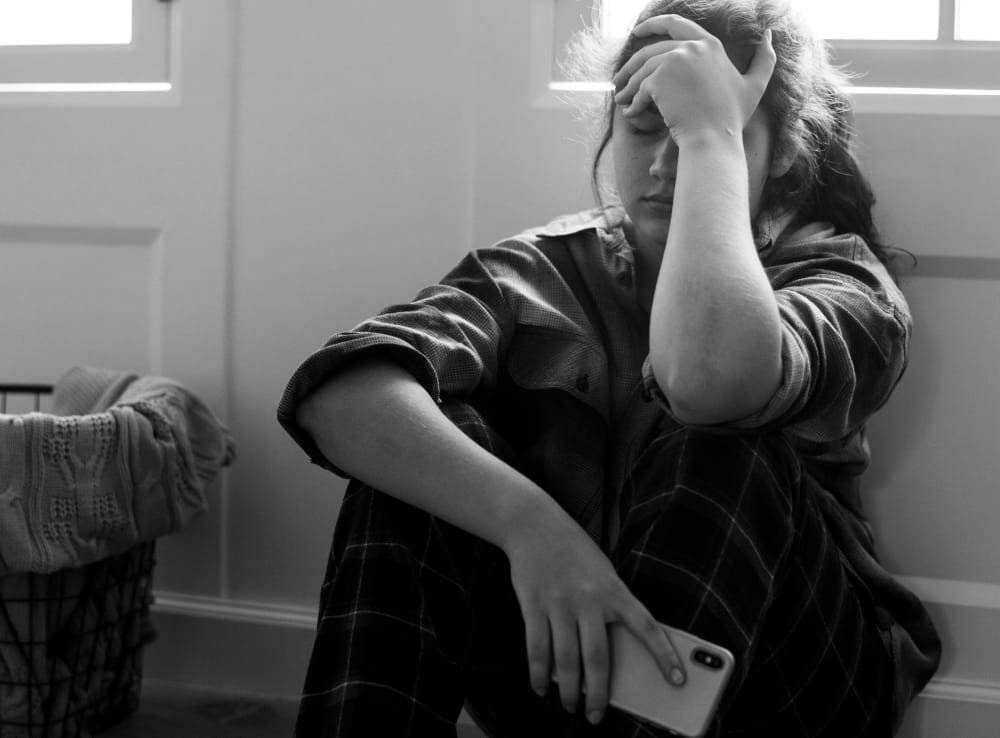
Losing a loved one is never easy, and the grief process can be an incredibly difficult journey to navigate. If a loved one is going through this process, you might be looking for ways to support them in any way possible. With that in mind, here are some tips to help you help someone through the waves of grief and loss. Let's also explore some resources that may come in handy during this difficult time.
Disclaimer: The following content is aimed at providing educational insight on grief and loss, along with resources for support. However, it's important to note that the authors of this document are not licensed mental health professionals. This information should not be used as a substitute for professional advice, diagnosis, or treatment. If you or your loved one are struggling, we strongly urge you to seek help from a qualified healthcare provider.
Bio-One of Marion County
Before diving into specific tips, it's important to understand the general stages of grief. The grieving process is not linear and can vary greatly from person to person, but generally follows these stages:
Keep in mind that individuals may experience these stages in a different order or may revisit certain stages multiple times.

The initial reaction to loss is often shock and denial. This can be a coping mechanism for the overwhelming emotions that come with grief. During this stage, individuals may feel numb or in disbelief about the loss.
As reality sets in, anger and guilt are common emotions felt by grievers. They may feel angry at themselves, others, or even the person who passed away. This is a normal part of the process and should not be suppressed.
During this stage, individuals may try to negotiate with a higher power or search for ways to make sense of the loss. Support them without dismissing their feelings.

This stage can include feelings of deep sadness, loneliness, and despair. Validate these emotions and offer a safe space for individuals to express them.
The final stage of grief is acceptance. This does not mean that the person has moved on or forgotten about the loss, but rather they have found a way to live with it and move forward in their own time. Being aware of this can help you navigate how best to support your loved one.
Supporting a loved one during their grief journey demands empathy, patience, and understanding, as grief is a deeply personal process. Each experiences and expresses their sorrow in unique ways, and it's essential to meet them where they are. Take a look at some practical tips and strategies to effectively support your loved one through their grief and help them navigate this journey:
Grief is a very personal process and everyone goes through it differently. Some people may want to talk about their loved ones, while others may find it too painful. Be there to listen to your loved one and let them know that they are not alone. Make it clear that you are available to listen whenever they are ready, and that you are there to support them no matter what!

Sometimes, the most helpful thing you can do is offer practical assistance. Offer to help with everyday tasks like cooking, cleaning, or running errands. These things can often become overwhelming for someone going through the grieving process, and offering a hand can be incredibly meaningful.
Special dates like anniversaries or birthdays can be particularly hard for someone going through the grief process. Offer to spend time with your loved one on these dates, or simply check in and offer your support. Let them know that you remember and that you are there to help them get through what can be a particularly hard time.
While it's natural to want to try to make things better, sometimes platitudes can actually be harmful. Statements like "everything happens for a reason" or "they're in a better place now" can be hurtful, and undermine the legitimate feelings of grief and loss that someone is experiencing. Instead, offer sincere empathy and listen to what your loved one is saying.

Grief is a journey, and it takes time to process. While it's natural to want to "fix" things and make everything better, the process of grief can't be rushed. Be patient, kind, and understanding, and offer your support over the long haul. Even if your loved one seems to be doing better, remember that grief can be a cyclical process, and you will want to continue to offer support even as time goes on.
While you are helping someone through the grieving process, be prepared for emergencies that may arise. Here are a few resources that can help in case of an emergency:
It's also helpful to have a list of local resources available, such as support groups or therapists who specialize in grief counseling. These resources can provide additional support and guidance. Grief and loss are never easy but you don't have to go through this alone!
Bio-One of Marion County is a locally owned and operated biohazard and hoarding cleaning company serving Indianapolis and the surrounding areas. We specialize in all types of extreme cleaning, including blood and bodily fluids, decomposition/undiscovered death, crime scene, suicide cleanup, tear gas, feces/urine, rodent droppings, sewage backups, hoarding, gross filth, virus/bacteria disinfection and odor removal. Helping people get their lives back in order is our #1 priority.
Bio-One of Marion County is here to help you 24/7, 365 days a year! Call (317) 499-0614, and you'll speak directly to one of us when you call; there is never an answering service. We'll treat you like a person with the compassion and respect that you deserve.
If you or someone you know may be considering suicide, contact the National Suicide Prevention Lifeline at 1-800-273-8255 (en español: 1-888-628-9454; deaf and hard of hearing: dial 711, then 1-800-273-8255) or the Crisis Text Line by texting HOME to 741741.

According to the American Psychiatric Association, suicide is the 10th leading cause of death in the United States and the second leading cause of death (after accidents) for people aged 10 to 34. And according the CDC, published reports from 2020 suggest that the pandemic has had a negative effect on children’s mental health.
“Beginning in April 2020, the proportion of children’s mental health–related ED visits among all pediatric ED visits increased and remained elevated through October. Compared with 2019, the proportion of mental health–related visits for children aged 5–11 and 12–17 years increased approximately 24%. and 31%, respectively.”
Researchers have yet to link recent suicides to the pandemic since 2020 suicide data is not yet available. But on the ground, there's growing concern.
The February 2021 NPR article “Child Psychiatrists Warn That The Pandemic May Be Driving Up Kids' Suicide Risk” explores possible correlation. Takeaways include:
For ways to help kids at risk, NPR encourages readers to read Part 2 of their story, “Make Space, Listen, Offer Hope: How To Help A Child At Risk Of Suicide”.
Suicide Prevention Resources
Survivors of Suicide – What to Do Next
The loss of a loved one by suicide can be a deeply painful and traumatizing experience; however, it’s important to know that everyone experiences suicide loss in their own way. As you begin the process of healing, consider reading the American Foundation for Suicide Prevention’s guide for to talk to others about what happened and identify ways to take care of yourself.
Additionally, if you have lost someone to suicide, there may be a cleanup required. There is no need for family or friends of the loved one to be further traumatized or overwhelmed with trying to figure out how to clean the impacted area. Bio-One is here for you. Learn more about Bio-One’s suicide remediation services.
If you or someone you know may be considering suicide, contact the National Suicide Prevention Lifeline at 1-800-273-8255 (en español: 1-888-628-9454; deaf and hard of hearing: dial 711, then 1-800-273-8255) or the Crisis Text Line by texting HOME to 741741.